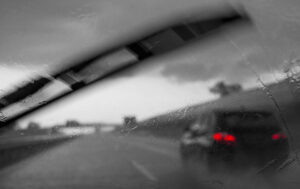
Minnesota experiences all four seasons, which is both good and bad. Sometimes we have the perfect weather, while other times you’d rather be anywhere but outside. Poor weather and visibility can also impact your driving abilities, and what if the weather plays a role in your DUI traffic stop or field sobriety tests? In today’s blog, we take a closer look at how the weather can impact your DUI case.
Weather And DUI Traffic Stops
Poor weather can make driving hazardous, but that doesn’t mean you can use the weather as an excuse for why you ran a red light or struck a curb if you were driving. It certainly may have contributed to the action, but it doesn’t excuse your driving behavior. Moreover, as long as police are conducting the traffic stop in good faith, they can legally arrest you if they find out or suspect during the interaction that you are under the influence.
In other words, if an officer sees you skid through a stop sign on some black ice, they can conduct a traffic stop on the grounds that you may have been driving too fast for conditions, or because you didn’t stop at the sign like you were supposed to. Even though they aren’t suspecting a DUI at this point, if they speak with you and you are showing all the signs of impairment, they can place you under arrest on suspicion of driving under the influence. You’re not going to be able to argue that the weather should not have given the officer enough reasonable suspicion to conduct a legal traffic stop.
Weather And Field Sobriety Tests
However, there is a chance that you could argue about the validity of your field sobriety tests if they were taken in inclement weather. If it was raining heavily, it was very windy or there was ice and snow all over the roads, you may be able to argue that the weather conditions contributed to your failed field sobriety tests.
Case law about inclement weather and field sobriety tests has been better established in other states, but in general, police are supposed to conduct the field sobriety tests in a safe location that allows accurate data to be collected. If 50 mile per hour winds are pushing your off balance when trying to do the one-leg test, or you slip on ice when trying to walk in a straight line, you may have an argument to throw out the validity of those results. A good lawyer can help make a case that the field sobriety interpretation made by the officer was severely affected based on the weather, and use your account and weather reports to back up those claims.
Now, police will still likely have other evidence to back up their claims, but that doesn’t mean it’s not worth challenging the validity of your field sobriety tests if inclement weather truly did affect your ability to perform the tests. If you feel like your roadside tests were negatively impacted by the weather, or if there was another issue with how your DUI case was conducted, reach out to Avery and the team at Appelman Law Firm at (952) 224-2277 for a free case consultation.





